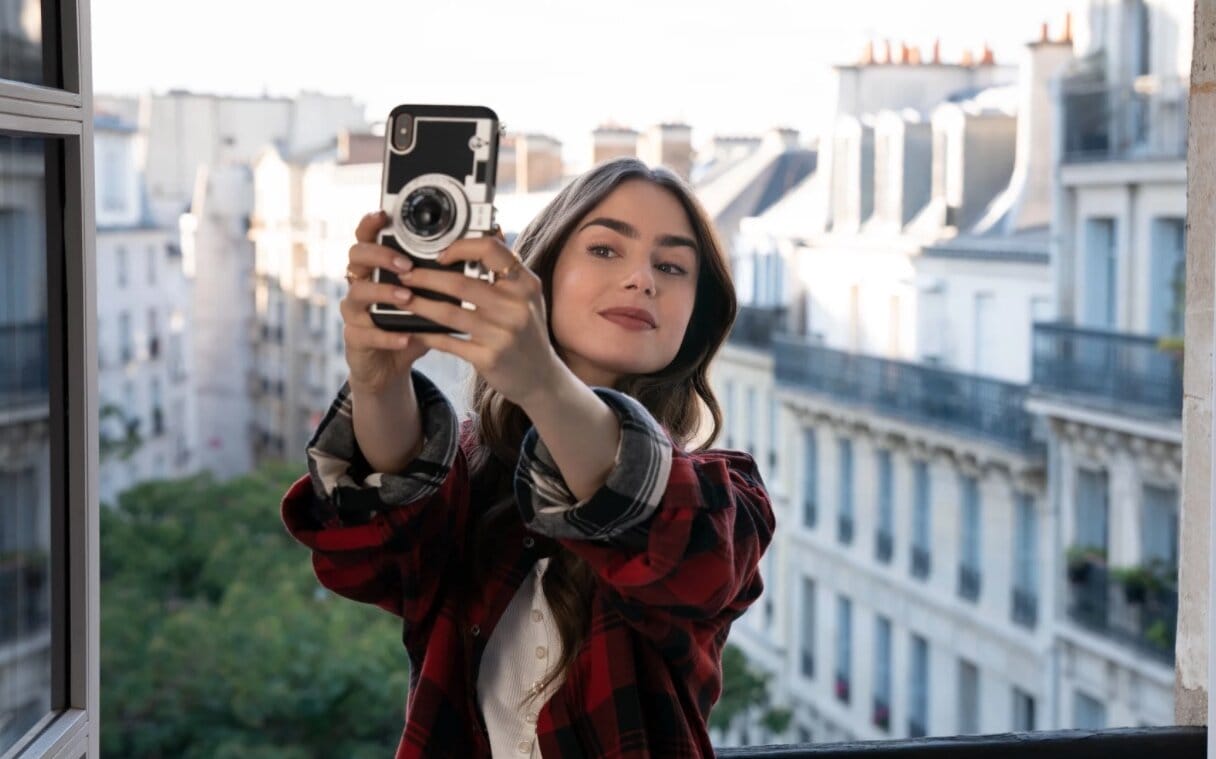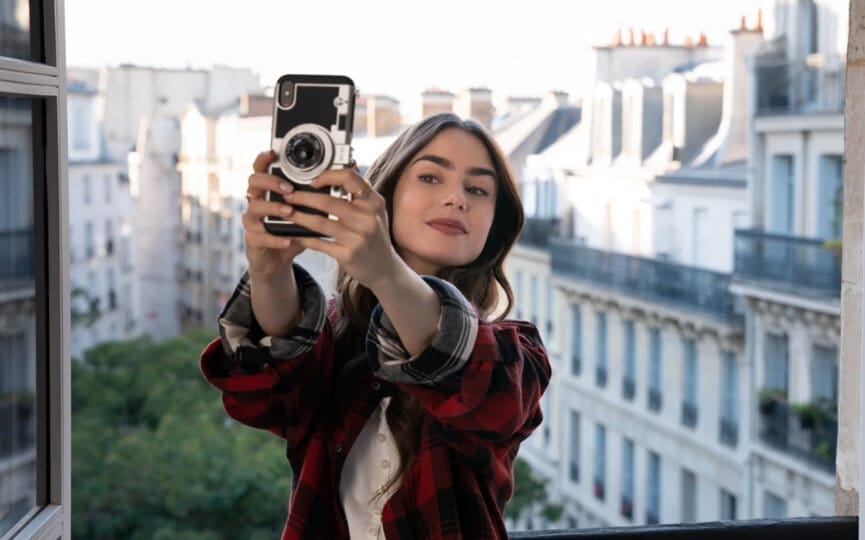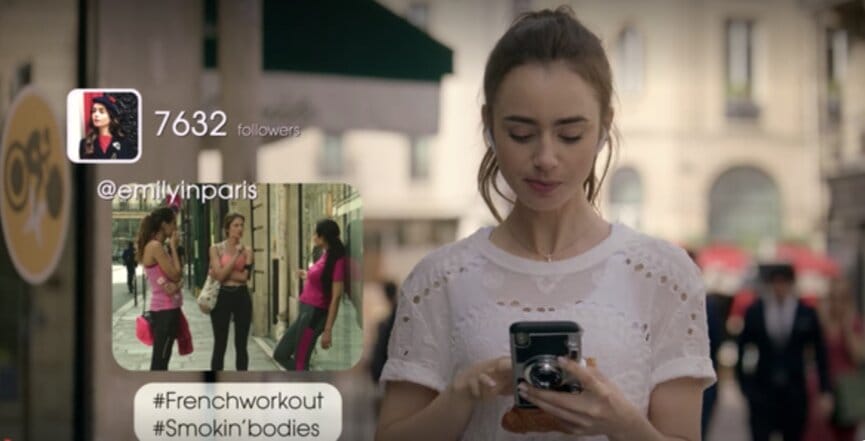5 Social Media Lessons Learned From Emily In Paris

I think most of us can agree that Emily in Paris is the perfect escape. One many of us desperately needed this year. As social media pros, we thought the show offered some valuable social media lessons that any brand can use to help their social media presence!
1. It is not that easy to grow an Instagram account
If you were incensed by Emily’s meteoric rise to influencer stardom, you’re not alone. No offense to Emily, but a selfie at a cafe and cheese at a market seems like a throwback to the early days of Instagram and likely won’t get you a double digit following organically. Establishing an Instagram presence and growing a profile involves a lot of content planning and strategy. To put it plainly, it’s just not that simple anymore.
Vulture interviewed several French influencers about Emily’s Instagram account and Lamia Lagha had this to say: “She’s trying to find the easiest way to get more and more followers who respond to these kinds of clichés.” And it doesn’t feel [contemporary]. Paris has changed so much.”
2. Not all influencers are created equal
Influencers often get a bad wrap for being in it for the swag and fame. Sure, those people are out there but there are some really talented influencers that can drive real results for your brand.
On the same note, finding the right influencers for your brand is key. Just because you can pay for an influencer with 1 million followers, doesn’t mean you should. For example, you wouldn’t want to hire a high fashion influencer with millions of followers when your brand is budget friendly loungewear. There are influencers for every budget and product, and identifying the right ones for your brand is an involved vetting process. But don’t worry – it’s one we can absolutely help with!
3. Consent is key
Asking permission to take a photo of someone is essential.
Emily breaks this cardinal rule often as she explores Paris with her American wide-eyed joie de vivre, posting photos of French people going about their day.
Voyeurism isn’t necessarily malicious but it’s so important to have the consent of people in a photo, especially if you’re using it for commercial purposes. A Grazia review of the show said it best, “If you are too embarrassed to ask to take someone’s picture, then you already know that you shouldn’t be doing so.”
4. Having conversations with your audience is still important
Social media doesn’t have to just be a highlight reel of picture perfect images. Remember why social media started, to foster connection and create conversations. You can and should use it to get feedback in real time from your audience and potential customers. In episode 3, Sexy or Sexist, the group watch the De L’Heure commercial with a woman walking buck naked on a bridge over the Seine and Emily suggests they let the audience decide with a poll ‘sexy or sexist?’, and Antoine agrees. The next day, Madeline calls Emily to tell her that her social impressions are up 200% since the poll went live, but a lot of people don’t like it.
While the idea was created on the fly, it reminds us to ask questions to our audience as a way to start conversations and brand awareness.
5. Keep the zeitgeist in mind when you’re creating content
Perhaps the most memorable piece of content Emily created was the vagina rejuvenation product with the caption “The vagina is not male!,” referring to the fact that the French word for vagina takes a male pronoun.
It was so smart, funny, and most importantly timely in the post “Me Too” era and the continuous growth of female empowerment. This type of post would’ve worked coming from the brand as well but it was an excellent UGC post the brand could amplify resulting in getting in front of Brigette Macron.
What does this mean for your brand? When you’re planning your content calendar, think about what’s going on in the world and how it ties to your brand. Perhaps you’re a seafood company and ocean conservation is really important to you. Think about creating content about this topic and perhaps help amplify lobbying efforts for conservation to prove your value to the conversation and build goodwill.
It’s important though to make sure you’re not joining a social conversation just so you’re present or just to earn sales. Make sure the values of the conversation align with your brand and you’re not being opportunistic.
Emily Hines is a social media manager at Firebelly. She’s a craft beer lover enjoying life in the Upper Peninsula of Michigan with her husband, daughter, and two black labs.






